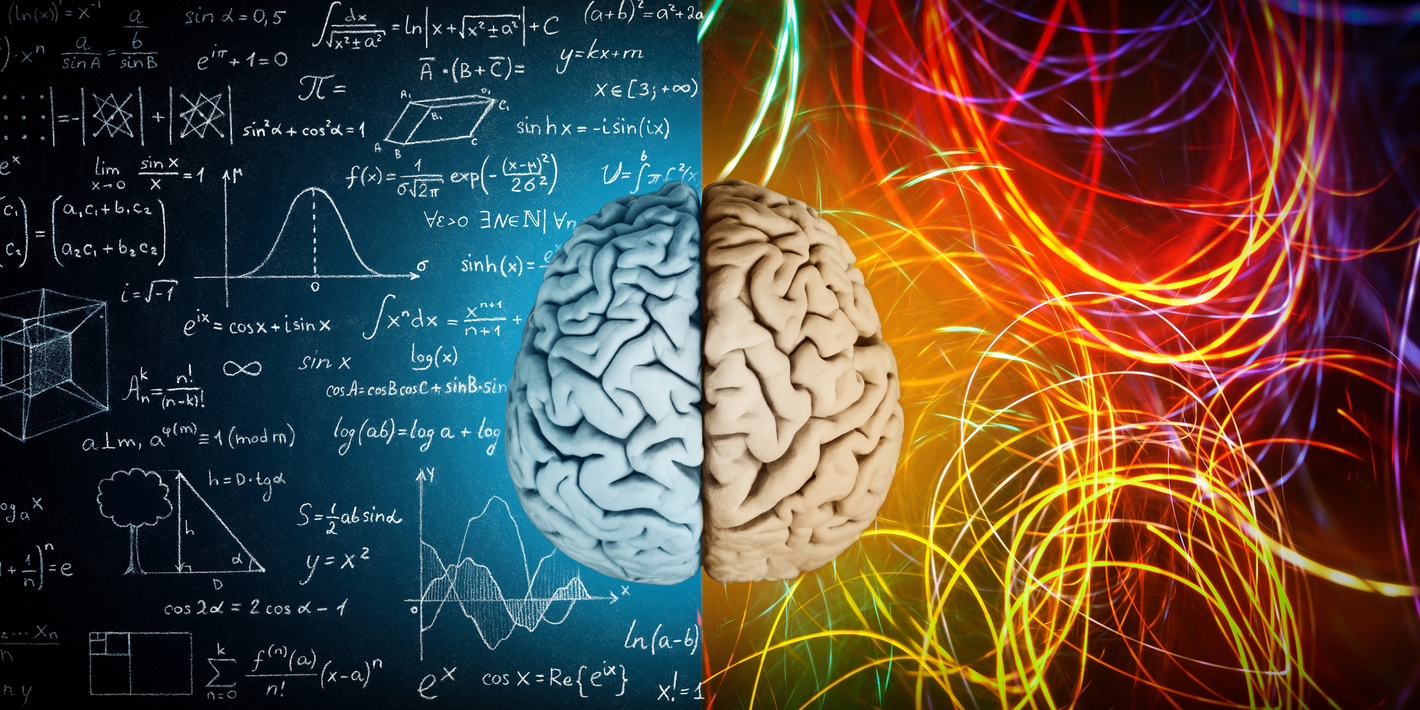
5 Brain Boosting Nutrients
Understanding the Power of Brain Boosting Nutrients
In today's fast-paced society, it's more critical than ever to keep our brains healthy and functioning at their highest capacity. Brain-boosting nutrients, often termed "nootropics," can play an essential role in enhancing cognitive abilities, improving mood, memory, and mental clarity. While many factors impact our brain's health and performance, diet is one of the most significant, as it directly influences our brain's structure and function. This article dives into the power of five key brain-boosting nutrients: Omega-3 fatty acids, magnesium, antioxidants, B vitamins, Vitamin D, and iron.
However, it is crucial to bear in mind that while these nutrients are beneficial, they should be consumed in balance with other dietary components. Overconsumption may lead to side effects and imbalance in nutrient intake, which can cause other health complications. For instance, excessive iron can lead to iron toxicity. Similarly, an overconsumption of Vitamin D without adequate calcium intake could potentially lead to hypercalcemia. Therefore, understanding the tradeoffs involved in balancing different factors is essential.
The importance of considering the impact of these nutrients also lies in the fact that different individuals may have varied needs based on their genetic makeup, lifestyle, and age. This means that what works for one person may not necessarily work for another. Furthermore, obtaining these nutrients from food sources is generally preferable to supplementation, but this can pose challenges due to variations in diet, access to certain foods, and personal preferences.
The article will now delve deeper into each of these nutrients, their benefits, and the challenges associated with their intake.
Fueling Cognitive Function and Mental Clarity
Omega-3 fatty acids are a type of polyunsaturated fat that is essential for the body. They play a pivotal role in maintaining brain health, enhancing cognitive function, and providing mental clarity. The most prominent Omega-3s are eicosapentaenoic acid (EPA), docosahexaenoic acid (DHA), and alpha-linolenic acid (ALA).
DHA is particularly essential for brain health. It helps improve the fluidity of cell membranes, which plays a crucial role in synaptic transmission—the process through which neurons communicate. Research shows that consuming DHA can lead to improvements in memory, mood, and cognition, especially in older adults who may be experiencing mild cognitive impairment.
EPA, while not as directly involved in brain structure as DHA, also has benefits, mainly related to mood regulation. It's thought to exert these effects through anti-inflammatory pathways, helping to reduce neuroinflammation, a key factor in mood disorders like depression.
Despite the benefits of Omega-3 fatty acids, obtaining sufficient amounts can be a challenge, particularly for those who do not consume fish, a primary source of EPA and DHA. Flaxseeds and chia seeds, while rich in ALA, are less potent sources because the body must convert ALA into EPA and DHA—a process that is not always efficient. However, for vegetarians or those allergic to fish, there are algae-based supplements that offer a plant-based source of these essential fatty acids.
Protecting the Brain from Oxidative Stress and Age-Related Decline
Antioxidants are substances that protect the body from oxidative stress, a process that damages cells and has been linked to numerous health issues, including age-related cognitive decline, Alzheimer's, and Parkinson's. The brain, being a highly metabolic organ, is especially vulnerable to oxidative stress, necessitating a strong defense system to protect its delicate structures.
Antioxidants come in various forms, including Vitamins A, C, and E, flavonoids, and carotenoids. All of these have unique properties and roles in defending against oxidative stress.
Vitamin A, for instance, is a fat-soluble vitamin known for its role in vision health, but it also acts as a powerful antioxidant. It aids in maintaining the integrity of membranes surrounding brain cells, providing a line of defense against free radicals. Vitamin C, on the other hand, is a water-soluble antioxidant that readily crosses the blood-brain barrier and protects neurons from oxidative damage.
Flavonoids, naturally occurring compounds found in a wide variety of fruits and vegetables, are also potent antioxidants. Some research indicates that a higher intake of flavonoids may delay the onset of cognitive decline. Carotenoids, particularly lutein and zeaxanthin, have also been shown to support cognitive function, likely due to their antioxidant and anti-inflammatory properties.
The challenge with antioxidants is that while they are abundant in a balanced, plant-rich diet, many people's diets lack sufficient fruits, vegetables, and whole grains to meet their antioxidant needs. Furthermore, lifestyle factors like smoking and excessive alcohol intake can increase oxidative stress, necessitating a higher antioxidant intake.
Energizing the Brain and Enhancing Cognitive Performance
B Vitamins, particularly B6, B9 (folic acid), and B12, play a vital role in brain health. They're involved in the production of neurotransmitters, chemicals that allow brain cells to communicate with each other. They also play a part in creating and repairing DNA, essential for the rapid cell growth and regeneration seen in the brain.
Vitamin B12, found primarily in animal products, is crucial for nerve function, and deficiencies can lead to serious neurological damage. Similarly, B6 and B9 help regulate homocysteine levels, high levels of which are associated with an increased risk of cognitive decline and Alzheimer's.
Balancing B vitamins' intake can be a challenge for those following a vegan or vegetarian diet due to B12's scarcity in plant foods. Supplements or fortified foods are often necessary to meet the required intake. It's also crucial to remember that while B vitamins are water-soluble and excess amounts are generally excreted, overconsumption, particularly of B6, can lead to nerve damage.
Strengthening Cognitive Abilities and Mood Regulation
Vitamin D, often known as the "sunshine vitamin," plays a key role in cognitive function and mood regulation. It supports the health and function of neurons, aids in neurodevelopment, and has been linked to a decreased risk of neurodegenerative diseases.
Despite its importance, Vitamin D deficiency is surprisingly common, likely due to limited sun exposure in many parts of the world, and the fact that it's naturally present in very few foods. Additionally, certain populations, including older adults, those with darker skin, and individuals who are overweight or obese, are at increased risk of deficiency.
Balancing Vitamin D intake involves both dietary intake, including fortified foods and supplements, and sun exposure. However, it's important to balance the need for sunlight with the risk of skin cancer. This can be a particular challenge for people living in northern latitudes or those with limited outdoor activities.
Optimizing Brain Oxygenation and Enhancing Cognitive Function
Iron is a crucial mineral that plays a critical role in cognitive function. It helps deliver oxygen to the brain and is a component of neurotransmitters, contributing to memory and learning abilities. Iron deficiency can lead to impaired cognitive function and is particularly harmful during stages of rapid brain development, such as in infancy and adolescence.
Despite its importance, balancing iron intake can be challenging. Too little can lead to anemia and cognitive impairments, but too much can cause iron toxicity and harm organs like the heart and liver. It's also more difficult for certain populations to get enough iron. For instance, vegetarians and vegans may struggle because iron from plant sources is not absorbed as efficiently as iron from animal sources. Women of childbearing age also have higher iron requirements due to menstrual blood loss.
Supplementation can be a useful tool in managing iron intake, but it's important to monitor levels carefully to avoid excessive intake. It's always recommended to get nutrients from food sources when possible, with fortified cereals and legumes being good plant-based sources of iron.
Promoting Relaxation and Supporting Cognitive Health
Magnesium is a powerful mineral known for its calming effects on the brain and body. It plays a vital role in regulating neurotransmitters, the chemicals that send signals throughout the brain and nervous system. This regulation can help promote relaxation and sleep, both of which are important for optimal cognitive health.
Research shows that magnesium is also essential for maintaining the plasticity of synapses, the points at which neurons communicate. This function is critical for learning and memory. A deficiency in magnesium can lead to reduced synaptic plasticity, which can have a detrimental effect on cognitive function.
Despite its importance, getting enough magnesium can be challenging. It's found in many foods, but in relatively small amounts. Whole grains, leafy green vegetables, and nuts are among the best sources. Balancing intake can be challenging, as both deficient and excessive magnesium levels can lead to health problems. Excessive intake, usually from supplements, can cause digestive issues and, in extreme cases, more serious health problems.
Enhancing Memory and Learning Abilities
Zinc is a trace mineral that plays a vital role in brain function. It's found in high concentrations in the brain, particularly in the hippocampus, the region of the brain responsible for memory and learning.
Studies have found a direct correlation between zinc levels and cognitive function. Adequate zinc intake is necessary for maintaining the structure and function of brain cells. A deficiency in zinc can lead to changes in these cells, which can impair memory and learning abilities.
The challenge with zinc is that it's required in small amounts, yet it's crucial to get enough. It's found in a variety of foods, including meat, shellfish, legumes, and seeds. However, certain groups, such as vegetarians and those with gastrointestinal disorders, are at a higher risk of deficiency and may require supplements or fortified foods to meet their needs.
Boosting Neurotransmitter Function and Cognitive Processing
Choline, often grouped with B-vitamins, plays a vital role in brain function and overall nervous system health. It's a precursor to acetylcholine, a neurotransmitter essential for memory, mood, and cognitive function.
Research indicates that adequate choline intake can support cognitive processing, brain development, and may even help prevent memory loss associated with aging. Furthermore, maternal intake of choline during pregnancy has been linked to improved cognitive outcomes in infants.
Dietary sources of choline include eggs, liver, fish, and peanuts. However, achieving adequate choline intake through diet alone can be challenging, particularly for vegetarians and vegans, as the richest sources are animal-based. In such cases, choline supplements can be an effective alternative.
Nourishing the Brain and Enhancing Cognitive Resilience
Polyphenols are a type of antioxidant found abundantly in plant foods like fruits, vegetables, nuts, seeds, and even in beverages such as coffee, tea, and wine. They have been shown to enhance brain health by reducing inflammation, promoting brain plasticity, and increasing blood flow to the brain.
Some research suggests that a higher intake of dietary polyphenols can potentially slow down cognitive aging and reduce the risk of neurodegenerative diseases. However, while the consumption of polyphenol-rich foods is generally beneficial, the absorption and utilization of these compounds in the body can be complex and influenced by numerous factors, including individual genetics and gut microbiome composition.
Summary
Nutrition plays a fundamental role in the maintenance and enhancement of cognitive health. From the well-recognized Omega-3 fatty acids to the lesser-known choline, we have discovered that several key nutrients are vital for optimal brain function. They serve as fuel, protectors, facilitators, and builders in the complex neural networks that support our cognition, memory, learning, and overall brain health.However, unlocking the potential of these nutrients requires careful balance and thoughtful intake. Overconsumption or underconsumption can lead to health problems, emphasizing the need for a balanced, nutrient-rich diet tailored to individual needs, health status, and lifestyle.
Furthermore, we must remember that a nutrient's benefits often exist in the context of a balanced diet, not just as an isolated compound. Food synergy, where the combination of different foods can enhance nutrient absorption and efficacy, plays a significant role in optimizing our nutrient intake.
Although the prospect of leveraging these nutrients to boost brain health is exciting, it's important to remember that they are just one piece of a larger puzzle. Regular physical exercise, adequate sleep, stress management, and a positive mental outlook are all essential for brain health. This holistic approach ensures that our efforts in one area are complemented and supported by others, leading to optimal health and well-being.
In the end, the journey towards optimal cognitive health is a personal and ongoing process. As we continue to deepen our understanding of the intricate relationship between diet and brain health, we can make better informed dietary choices that serve not just our brains, but our overall well-being.
By harnessing the power of these brain-boosting nutrients and embracing a balanced lifestyle, we are taking proactive steps towards sustaining our cognitive abilities, promoting mental clarity, and ultimately improving our quality of life. Indeed, our food choices today can shape our cognitive health for tomorrow, exemplifying the profound power and potential of brain-boosting nutrients.
Magnesium Information
For everything you need to know about magnesium and magnesium supplements, check out our comprehensive information page here.
Magnesium
We’ve created a magnesium supplement with a combination of three types of highly absorbable magnesium at a therapeutic dose. Our magnesium comes as an easy to mix, great tasting powder to ensure optimal absorption. To learn more about our magnesium, check out the product page here.


![Magnesium For Heart Health [Infographic]](http://www.biospherenutrition.co.nz/cdn/shop/articles/7-5-2017-6-42-10-pm_400x.jpg?v=1681285648)




